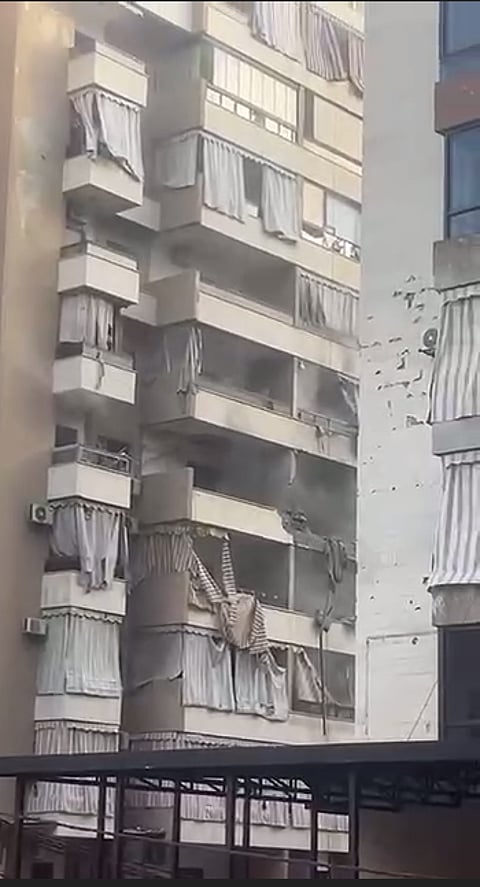

An Israeli airstrike on a residential building in a southern suburb of Beirut has killed a senior Hezbollah commander, Haytham Ali Tabatabai, in an attack the group says crosses a "red line" and threatens a serious escalation. The strike, which killed five people and wounded 28 others, represents a significant breach of the tenuous ceasefire that has held for the past year.
Hezbollah has confirmed the death of "the great commander" Haytham Ali Tabatabai, who was targeted in a "treacherous Israeli attack" in the Haret Hreik area. Tabatabai was Hezbollah's chief of staff, a veteran who commanded most of the group's units and was central to efforts to restore their military readiness. The United States had designated him a terrorist and offered a $5 million reward for information about him. The strike hit a multi-story apartment building in the densely populated Dahieh district, with Lebanon's health ministry reporting at least five killed and 28 wounded in the attack. The force of the explosion sent debris crashing onto the street below, causing panic as residents rushed from their homes fearing further bombardment.
The attack marks the first Israeli strike on Beirut's southern suburbs in months and comes despite a U.S.-brokered truce that took effect in November 2024. While Israel claims it is acting to prevent Hezbollah from rebuilding its military power, the group has not fired on Israel since the ceasefire began and says it is abiding by the agreement. In contrast, Israel has maintained near-daily strikes on Lebanese territory and continues to occupy at least five positions in southern Lebanon, which Lebanese authorities cite as a major violation of the ceasefire terms. The strike occurred just two days after Lebanese President Joseph Aoun announced the country's willingness to negotiate under international sponsorship to establish a permanent end to hostilities, an offer that appears to have been met with further escalation.
Following the strike, President Aoun urgently called on the international community to "intervene with strength and seriousness to stop the attacks on Lebanon and its people". The attack exacerbates the profound challenges facing Lebanon, which is simultaneously navigating a severe economic crisis, a delicate political transition, and immense international pressure to disarm Hezbollah. The Lebanese government has approved a plan for the Lebanese Armed Forces (LAF) to disarm non-state actors, a move Hezbollah rejects as serving only Israeli interests. However, Israel's ongoing military actions within Lebanon are seen by analysts as undermining the very government it is pressuring to act, with the Lebanese army itself having previously proposed suspending disarmament operations until Israeli attacks cease.
Hezbollah officials have stated that the strike "crosses a red line" and that the leadership is studying the matter and will decide on an appropriate response. This development opens the door to a dangerous new phase of escalation, with a senior Hezbollah figure warning it could lead to "an escalation of assaults all over Lebanon". The incident occurs at a particularly sensitive time, just one week before Pope Leo XIV is scheduled to make his first foreign trip to Lebanon, a visit many Lebanese had hoped would signal a turn toward stability and better days. With Israel demonstrating it is "not interested in negotiating at the moment," according to analysts, the path toward a durable peace remains deeply uncertain.